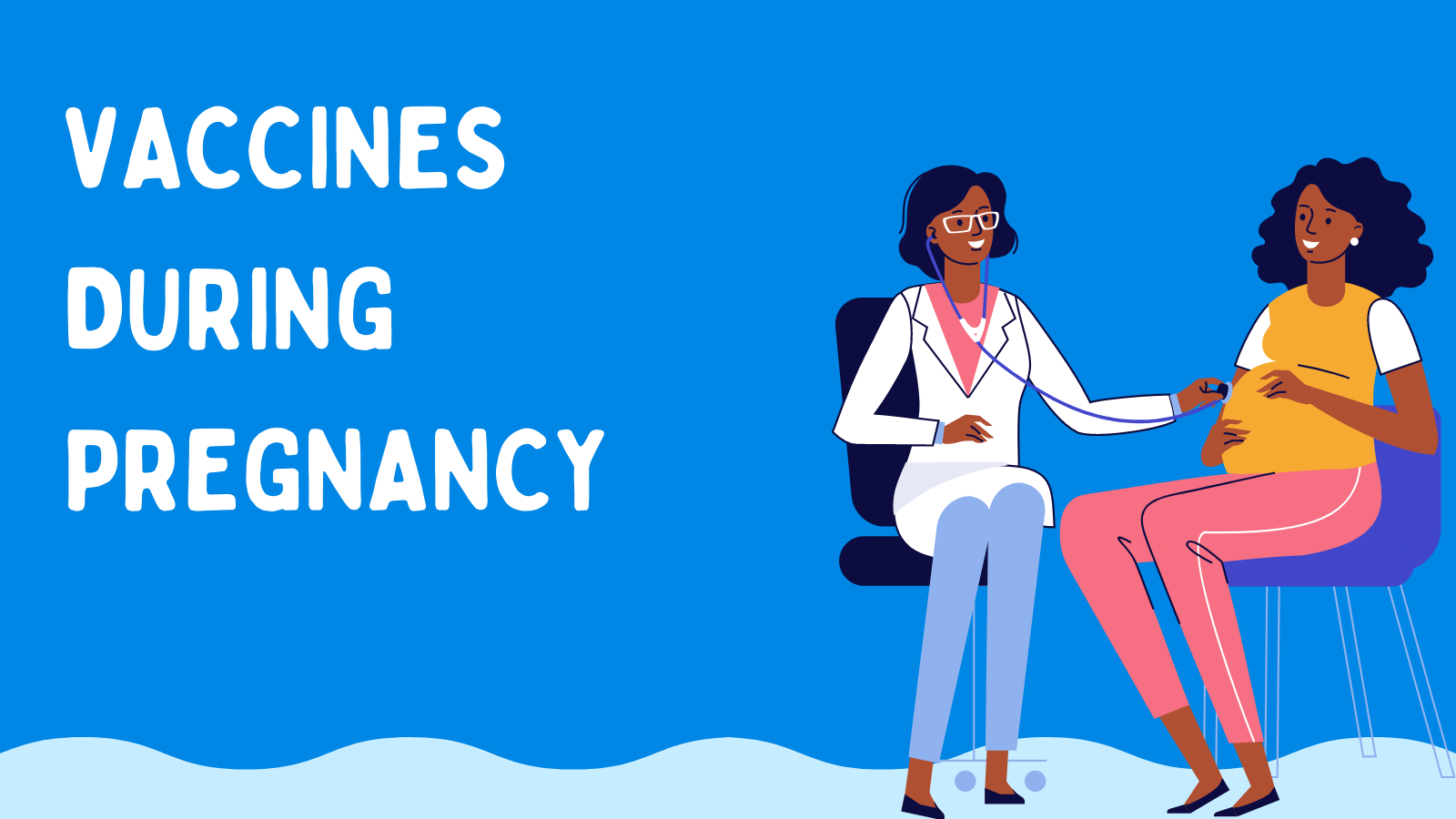Celebrating Women’s History Month | Vaccines During Pregnancy

As we celebrate Women’s History Month, we want to take a moment to recognize the important role that women play in creating and sustaining healthy communities. Throughout history, women have made significant contributions to society, including the invaluable contributions of female scientists in establishing the groundwork for modern vaccines. That’s why, during the month of March, VEAP will be covering topics related to vaccinations as they pertain to women’s health.
Today we will be taking a moment to focus on vaccines during pregnancy. Vaccines are an important tool for protecting both the health of the mother and the health of the baby during pregnancy as well as helping to create a healthier community for everyone. Below we wanted to share some info from the CDC on 8 things you should know about vaccines and pregnancy
What You Need To Know About Vaccines and Pregnancy
1. The vaccines you receive during pregnancy not only protect you, they also help protect your baby! When you get your flu, Tdap (tetanus, diphtheria, and pertussis), and COVID-19 vaccines, your body makes antibodies (proteins made by the body to help fight disease). You can pass on some of those antibodies to your baby which will help provide protection from these diseases during the baby’s first few months of life.
2. The CDC and vaccine recommendation experts have approved the Flu, Tdap, and COVID-19 vaccinations as being safe for pregnant women and their babies. You can rest assured that safety data is carefully reviewed before experts are able to recommend these vaccines to pregnant women. And while vaccines can have some side effects such as mild fever, body aches, feeling tired, some redness or minor swelling or tenderness at the injection site, most people either experience mild or no side effects.
3. The Tdap vaccine helps protect babies against whooping cough which can be especially dangerous. The Tdap vaccine is given during the 27th to 36th week of pregnancy and helps protect against pertussis (commonly known as whooping cough) which can be a life-threatening illness in newborn babies.
4. The flu vaccine helps protect you and your baby against the flu. The changes your immune system and organs go through during pregnancy can make it more likely for you to get seriously ill from flu which means a higher risk of hospitalization and pregnancy complications like preterm labor or birth. The flu can also cause fever which can be harmful to your developing baby. Vaccinating against flu gives your baby antibodies which can help protect them in their first few months of life, before they’re able to be vaccinated.
5. A COVID-19 vaccine during pregnancy can help keep you from developing severe illness from COVID-19. People who are pregnant or were recently pregnant have a greater risk of getting very sick from COVID-19. Having COVID-19 during pregnancy also increases the likelihood of complications which can have a negative impact on you and your developing baby. “New data show that vaccination during pregnancy can help protect babies younger than 6 months old from hospitalization due to COVID-19.
6. Appropriate timing of vaccinations is important!
- No matter where you are in your pregnancy, the CDC recommends getting your flu vaccine by the end of October, before the flu starts to spread more rapidly. This timing helps ensure that you are protected before flu activity begins to increase.
- You should get your Tdap vaccine during your third trimester (between the 27th and 36th week). This will allow you to pass on the most antibodies to your developing baby and continue to keep them protected as a vulnerable newborn.
- The COVID-19 vaccination can be received at any time during pregnancy as well as the booster if you are eligible.
7. Others who are around your baby also need vaccines. Young babies don’t have fully developed immune systems and are therefore at greater risk of infections. Even if someone doesn’t feel sick they can still spread viruses to newborns. Because of this, “anyone who is around babies should be up to date on all routine vaccines, including Tdap, flu, and COVID-19 vaccination. This includes parents, eligible siblings, and any other caregivers, like grandparents, nannies, or babysitters. Anyone who needs vaccines should get them at least two weeks before meeting the baby because it takes about two weeks to develop antibodies after vaccination.”
8. If you have another pregnancy you will need to be vaccinated again. Your immunity decreases over time so even though you may have received a vaccine during a previous pregnancy, you may not have enough antibodies to provide protection in a new pregnancy. So, get your Tdap vaccine each time you are pregnant as well as a flu shot every season to be sure you have the best possible protection against disease.
We encourage all women who are pregnant or planning to become pregnant to talk to their healthcare provider about the vaccines recommended for them. Ensuring that you get the vaccinations you need during pregnancy helps give you the best chance for a healthy pregnancy and gives your baby the best protection they can have during the first months of their life. Stay tuned for the rest of the month as we cover more topics related to vaccines and women’s health!
Resources: Vaccines and Pregnancy: Things You Need to Know
Wondering where to get vaccinated?
Visit our website for up-to-date information on local vaccine clinics: Upcoming Everett and Malden Vaccine Clinics
Visit Vaxfinder.mass.gov or Vaccines.gov to find a location near you!
Text your zip code to 438829
Call 1-800-232-0233


